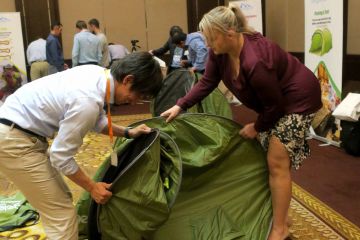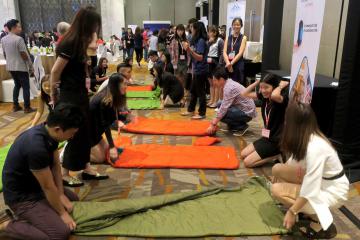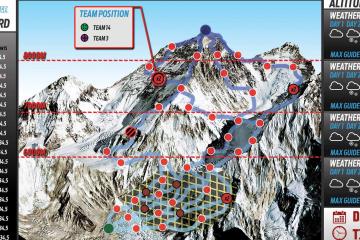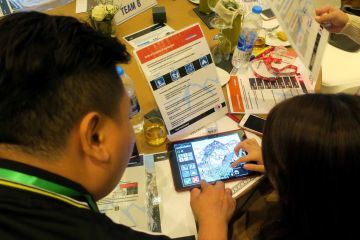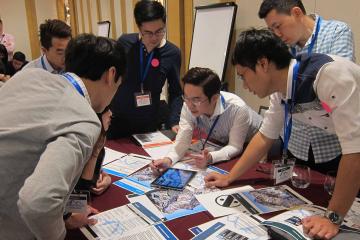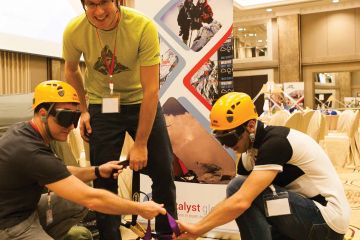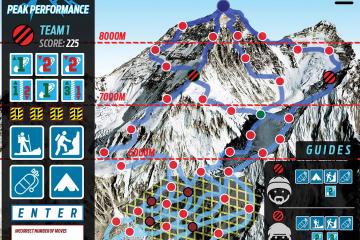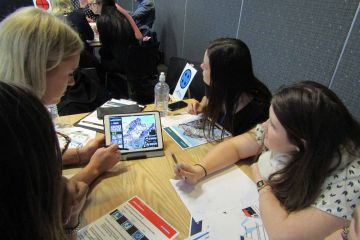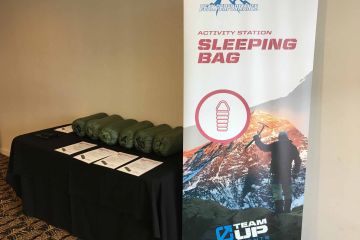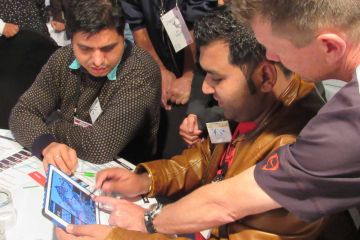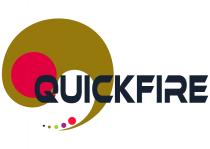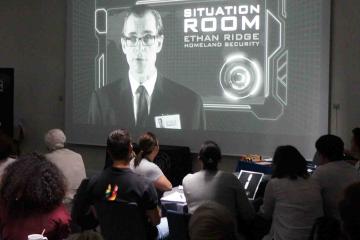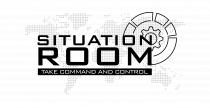Peak Performance
Teams work as a cohesive team guiding an expedition to summit Mount Everest.
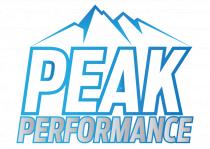
About
In Peak Performance, delegates take on the role of mountain leaders guiding their clients on an expedition to climb Mount Everest. An app-based survival simulation team building game, this is as decision-making and risk management activity that centres truly challenges attendees to think quickly and make effective decisions.
After being split into teams, attendees must manage a variety of extraneous factors including oxygen availability, tent pitching locations, acclimatisation, fitness levels, weather and route to the summit; developing strategies to help their clients gain the most points and outwit other expeditions. Over each day of the 20 day period, teams gain key information via their tablet and then make decisions based on this information. With limited availability within each zone of the mountain, this decision-making must be informed but quick, otherwise, teams may be forced onto a more challenging route or be left unable to move at all.
In theme with the survival simulation team building, delegates also tackle active challenges throughout the expedition too. These challenges vary in specification but include sleeping bag stuffing, pop-up tent packing and more. As teams move higher up the virtual mountain, they generate points but without the proper preparations, supplies or equipment, their clients are at risk of illness or death, leading to deductions and consequences.
Learning Outcomes
With a high-stakes theme, Peak Performance is an emotionally gripping and highly engaging educational tool. Through gamification, this survival simulation team building game presents participants with a results-driven learning experience where their actions lead to lasting long-term results. Combined with an innovative and immersive approach, this activity helps practice core business skills like time management, risk management, decision making and situational analysis.
After the game has concluded, delegates are also asked or reflect upon their performance and identify key turning points within the exercise. By relating these key moments to real life business situations, teams self-diagnose their shortfalls, identify areas of improvement and make real, permanent changes to their behaviour. It’s these changes which translate effectively into the workplace and result in a more engaged and effective workforce.

